Public policies and local governments: theory, methods and strategies
Public policies and local governments: theory, methods and strategies
The Universidad Abierta of Recoleta, together with the Transnational Institute (TNI), present the third course of the International Diploma on Transformative Local Governments.
In the current global context, marked by the emergence of emerging conflicts that are enhanced by the post-pandemic, it is necessary to review the main approaches to public policy theory, delve into study and application methods, strategies available to solve public problems and the definition of what is public and how to deal with the same problems, but from another perspective.
It is necessary to have the basic tools to make a critical analysis of the issues that involve community life, as well as the response that is expected from the territory for the demands of citizens in an increasingly uncertain context.

What you will learn
You will differentiate the main components of public policy and the specificities in its application at the local level, contemplating the relationship between the municipality, citizens and social movements that coexist in the territory.

Requirement
Aimed at local government officials who are linked to policies and strategies that are related to the territory, social managers, leaders of an NGO or other organisation with an impact at the community or regional level, and the general public. 15 years old as minimum, internet connection and any smart electronic device.

Agent of change
The Digital Courses (DC) of the Universidad Abierta of Recoleta emphasise the construction of knowledge in order to generate a social transformation. To achieve this, it promotes as a methodological resource the active involvement of the participants within their communities.

Certification and free-of-charge
The course will be certified by all parties involved in the development of this course, as long as the approval requirements are met.
There is no cost of any kind for the participants.
Teachers and experts

Associate professor at the Faculty of Economics and Business of the University of Chile. He studied Psychology at the Catholic University, then a master’s degree in Political Communication and a PhD in Communication, both at the University of Sheffield, in England. His lines of research are advertising in online and offline media, communication strategy, media consumption, persuasive strategies and food consumption. Along with his academic work, he has served as Director of projects at Cadem, advisor to media companies, principal advisor to the Director of Communications SECOM between 2006 and 2010, then as Director of Studies and presidential advisor between 2014 and 2016. Today he is Director of the Postgraduate School of the Faculty of Economics and Business, where more than 1,600 master’s and doctoral students are currently studying. He has published in various international journals such as Harvard Business Review (Latin American version), International Journal of Advertising, Appetite, Academia, International Marketing Review, Journal of Business Research, Journal of Food Product Marketing, etc.

Academic Director of the Diploma on Data Science, Local Governments and Territory at FLACSO-Chile. Part of the Diploma of the Program in Policies for Digital Development in Latin America and the Caribbean. He served as Chief of Staff of the former Deputy Vice President in the Constitutional Convention of Chile, Pedro Muñoz, district 24.

Aguilar Villanueva has a Ph.D. in philosophy, specializing in political philosophy, with postgraduate studies at the Pontifical Gregorian University, Rome, and at the Eberhard Karls State University in Tübingen, Germany. He is National Researcher Emeritus of the National System of Researchers (SNI, Mexico, 2008). He was a research professor at UNAM (1975-1988), at El Colegio de México (1989-1995), where he coordinated the public administration program, and at the Universidad Autónoma Metropolitana – Xochimilco, in the Master of Public Policy. Since 2006 he has been a member of the UN Committee of Experts on Public Administration (UN-CEPA), of which he is currently its chairman.

Graduated in International Relations at the Instituto Tecnológico y de Estudios Superiores de Occidente (ITESO) and Master in Political Management, Political Communication area, at the Universidad Católica de Córdoba, Argentina, participates as a consultant in matters of strategic communication for governments, parties, actors politicians and the private sector.

Ph.D. and author of the book Generation Left (2019), which argues that widespread leftist sympathies among youth is a modern phenomenon spawned by economic conditions. He is also a University Lecturer in Political Economy and Organisation at the University of Leicester.

Associate researcher at Cardiff University and Marie Skłodowska-Curie postdoctoral researcher at IGOP (2022-2025), a research center of the Autonomous University of Barcelona (UAB). His research interests focus on the new municipalism, hybrid ownership models, the politics of scale, and new approaches to decentralised forms of participation.

TNI ACADEMIC COORDINATION
Associate Researcher of the Transnational Institute (TNI) for the Transformative Cities award and the Atlas of Utopias. He is the academic coordinator of the International Diploma in Transformative Local Governments UAR-TNI. He is a Doctor in Government and Public Administration, from the Complutense University of Madrid, and has a Master’s degree in Development, Innovation and Change, from the University of Bologna, in Italy. He is currently a Visiting Researcher at the Center for Latin American Studies (CLAS) at the University of Copenhagen.
Specific learning outcome
Week 1
You will critically analyse a general framework of references and concepts about public policies and their development in the territory, considering the actors and institutions involved.
Week 2
You will study the most relevant aspects of governance, the definition of ‘good governance’ in the local space as well as the implications it has for democracy and its link with the public policy process in terms of democratic discussion and citizen participation in the definition of public problems within the territory.
Week 3
You will study the cycle of public policies, from the constitution of the public agenda, the definition of public problems, the design, incidence, implementation and evaluation of the initiatives carried out.
Week 4
You will study the importance of political communication for the implementation of public policies and its importance in reducing uncertainty in order to align the most relevant aspects considered for the realisation of the actions specified in the public policy developed.
Week 5
You will complete the academic (recap and final project) and administrative processes of the course (certification).
RELEVANT DATA

Application starting date
Tuesday, August 2nd.


Enrolment due date
Wednesday, November 23th up to 23:59 (Chile time)


Minimum quota
100 participants



Course starting date
Thursday, November 10th up to 17:00 (Chile time). You can enroll in the course up to 2 weeks after classes begin.


Course duration
5 weeks



Expected time by week demanded
6 hours


Day and time of the synchronous session
Wednesday, November 2th up to 16:00 (Chile time)



Synchronous class duration
90 minutes


Language
Spanish





